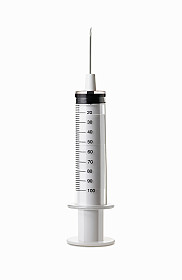 Peginesatide, an erythropoiesis-stimulating agent used to treat anemia among chronic kidney disease patients, has been voluntarily recalled across the United States by the drug’s producers, Affymax Inc. and Takeda Pharmaceutical Company, Limited. According to a press release by the US Food and Drug Administration, post-marketing reports demonstrated that peginesatide injections had resulted in anaphylaxis in 19 patients, with 3 of these cases being fatal. To date, hypersensitivity reactions have occurred in 0.2% of patients, with serious reactions, including anaphylaxis, occurring in approximately one-third of these cases. Fatal reactions were reported in 0.02% of patients after intravenous administration. These reactions have occurred within 30 minutes of patients receiving their first dose, and thus far, there have been no reports of reactions after subsequent doses or in patients who had completed their dialysis sessions. Dialysis centers and patients have been instructed to discontinue use of peginesatide. More than 25,000 patients have received peginesatide since it was approved by the FDA in March 2012.
Peginesatide, an erythropoiesis-stimulating agent used to treat anemia among chronic kidney disease patients, has been voluntarily recalled across the United States by the drug’s producers, Affymax Inc. and Takeda Pharmaceutical Company, Limited. According to a press release by the US Food and Drug Administration, post-marketing reports demonstrated that peginesatide injections had resulted in anaphylaxis in 19 patients, with 3 of these cases being fatal. To date, hypersensitivity reactions have occurred in 0.2% of patients, with serious reactions, including anaphylaxis, occurring in approximately one-third of these cases. Fatal reactions were reported in 0.02% of patients after intravenous administration. These reactions have occurred within 30 minutes of patients receiving their first dose, and thus far, there have been no reports of reactions after subsequent doses or in patients who had completed their dialysis sessions. Dialysis centers and patients have been instructed to discontinue use of peginesatide. More than 25,000 patients have received peginesatide since it was approved by the FDA in March 2012.
References
1. Recall – Firm Press Release. Affymax and Takeda Annouce a Nationwide Voluntary Recall of All Lots of OMONTYS (peginesatide) Injection. US Food and Drug Administration, 2013. http://www.fda.gov/Safety/Recalls/ucm340893.htm Accessed February 27, 2013.
2. FDA Alerts Health Care Providers of Recall of Anemia Drug Omontys. US Food and Drug Administration, 2013. http://www.fda.gov/NewsEvents/Newsroom/PressAnnouncements/ucm340899.htm Accessed February 27, 2013.

[…] NOTE: On February 23, 2013, after the video was produced, all lots of injectable peginesatide (Brand name Omontys) were recalled by Affymax, Inc. and Takeda Pharmaceutical Company Limited, in conjunction with the US Food and Drug Administration. Post-marketing reports demonstrated that peginesatide administration had resulted in hypersensitivity reactions among 0.2% of patients, with serious reactions, including anaphylaxis, occurring in approximately one-third of these cases. Fatal reactions were reported in 0.02% of patients after intravenous administration. Please see our news brief for additional details. […]